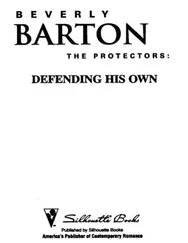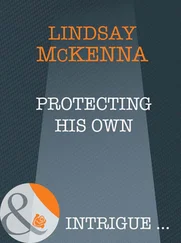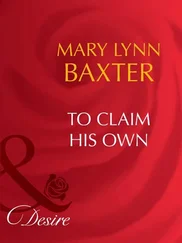Jonah Barrington - Personal Sketches of His Own Times, Vol. 2 (of 3)
Здесь есть возможность читать онлайн «Jonah Barrington - Personal Sketches of His Own Times, Vol. 2 (of 3)» — ознакомительный отрывок электронной книги совершенно бесплатно, а после прочтения отрывка купить полную версию. В некоторых случаях можно слушать аудио, скачать через торрент в формате fb2 и присутствует краткое содержание. Жанр: foreign_antique, foreign_prose, на английском языке. Описание произведения, (предисловие) а так же отзывы посетителей доступны на портале библиотеки ЛибКат.
- Название:Personal Sketches of His Own Times, Vol. 2 (of 3)
- Автор:
- Жанр:
- Год:неизвестен
- ISBN:нет данных
- Рейтинг книги:4 / 5. Голосов: 1
-
Избранное:Добавить в избранное
- Отзывы:
-
Ваша оценка:
- 80
- 1
- 2
- 3
- 4
- 5
Personal Sketches of His Own Times, Vol. 2 (of 3): краткое содержание, описание и аннотация
Предлагаем к чтению аннотацию, описание, краткое содержание или предисловие (зависит от того, что написал сам автор книги «Personal Sketches of His Own Times, Vol. 2 (of 3)»). Если вы не нашли необходимую информацию о книге — напишите в комментариях, мы постараемся отыскать её.
Personal Sketches of His Own Times, Vol. 2 (of 3) — читать онлайн ознакомительный отрывок
Ниже представлен текст книги, разбитый по страницам. Система сохранения места последней прочитанной страницы, позволяет с удобством читать онлайн бесплатно книгу «Personal Sketches of His Own Times, Vol. 2 (of 3)», без необходимости каждый раз заново искать на чём Вы остановились. Поставьте закладку, и сможете в любой момент перейти на страницу, на которой закончили чтение.
Интервал:
Закладка:
The tenants reluctantly obeyed his orders; but, unfortunately for “Holy Paul,” the Insurance Company, when applied to for payment of his losses, differed altogether from his Reverence as to the agency of Providence, and absolutely refused to pay any part of the damage incurred. Paul declared it would be a crime in him to insist by a law-suit upon payment; and that he’d rather lose all his insurance than bring any act of Providence into the Court of Exchequer, which never was renowned for any great skill in ecclesiastical polity. In tithe cases, they showed no sort of partiality to the clergy; and never would pay the least attention in any instance to assertions from the board of first-fruits without putting the clergy to the trouble of producing their witnesses .
The Honourable and Rev. Paul, however, got into disrepute by this occurrence, and his nephew declined being married by him. In fact, the fault of Holy Paul was, love of money: he had very good property, but was totally averse to paying away any thing. He was put into prison by his niece’s husband, where he long remained rather than render an account; and when at length he settled the whole demand, refused to pay a few pounds fees, and continued voluntarily in confinement until his death. Notwithstanding, greatly to his credit, he bestowed large sums in charity.
HAMILTON ROWAN AND THE BAR
Sketch of the character of Mr. Hamilton Rowan – His Quixotic spirit of philanthropy – Case of Mary Neil taken up by Mr. Rowan – Dinner-club among the briefless barristers of Dublin – Apparition of Mr. Hamilton Rowan and his dog – More frightened than hurt – An unanswerable query – Mr. Rowan’s subsequent adventures – The Rev. Mr. Jackson – He is brought up to receive sentence for high-treason, and expires in Court.
There were few persons whose history was connected with that of Ireland during my time, who excited my interest in a greater degree than Mr. Hamilton Rowan. Points of this gentleman’s character have been unfavourably represented by persons who knew little or nothing of his life, and that too, long after he had ceased to be a politician. I may claim perfect disinterestedness when I state that I never had the least social intercourse with Mr. Rowan, whose line of politics was decidedly opposed to my own.
Archibald Hamilton Rowan (I believe he still lives) is a gentleman of most respectable family and of ample fortune: considered merely as a private character, I fancy there are few who will not give him full credit for every quality which does honour to his station in society. As a philanthropist, he certainly carried his ideas even beyond reason, and to a degree of excess which I really think laid in his mind the foundation of all his enthusiastic proceedings, both in common life and in politics.
The first interview I had with this gentleman did not occupy more than a few minutes; but it was of a most impressive nature, and though now nearly forty years back, appears as fresh to my eye as if it took place yesterday: in truth, I believe it must be equally present to every individual of the company who survives, and is not too old to remember any thing.
There is generally in every metropolis some temporary incident which serves as a common subject of conversation; something which nominally excites interest, but which in fact nobody cares a sous about, though for the day it sells all the newspapers, and gives employment to every tongue, till some new occurrence happens to work up curiosity and change the topic.
In 1788, a very young girl, of the name of Mary Neil, had been ill-treated by a person unknown, aided by a woman. The late Lord Carhampton was reported to be the transgressor, but without any proof whatsoever of his Lordship’s culpability. The humour of Hamilton Rowan, which had a sort of Quixotic tendency to resist all oppression and to redress every species of wrong, led him to take up the cause of Mary Neil with a zeal and enthusiastic perseverance which nobody but the knight of La Mancha could have exceeded. Day and night the ill-treatment of this girl was the subject of his thoughts, his actions, his dreams: he even went about preaching a kind of crusade in her favour, and succeeded in gaining a great many partisans among the citizens; and, in short, he eventually obtained a legal conviction of the woman as accessory to a crime, the perpetrator whereof remained undiscovered, and she accordingly received, and most justly, sentence of death. Still Mary Neil was not bettered by this conviction: she was utterly unprovided for, had suffered much, and was quite wretched. Yet there were not wanting persons who doubted her truth, decried her former character, and represented her story as that of an impostor: this, though not credited, not only hurt the feelings and philanthropy, but the pride of Hamilton Rowan; and he vowed personal vengeance against all her calumniators, high and low.
At this time about twenty young barristers, including myself, had formed a dinner-club in Dublin: we had taken large apartments for the purpose; and, as we were not yet troubled with too much business, were in the habit of faring luxuriously every day, and taking a bottle of the best claret which could be obtained. 18 18 One of us, Counsellor Townley Fitgate, (afterwards chairman of Wicklow County,) having a pleasure-cutter of his own in the harbour of Dublin, used to send her to smuggle claret for us from the Isle of Man: he made a friend of one of the tide-waiters, and we consequently had the very best wines on the cheapest possible terms.
There never existed a more cheerful, witty, nor half so cheap a dinner-club. One day, whilst dining with our usual hilarity, the servant informed us that a gentleman below stairs desired to be admitted for a moment . We considered it to be some brother-barrister who requested permission to join our party, and desired him to be shown up. What was our surprise, however, on perceiving the figure that presented itself! – a man, who might have served as a model for a Hercules, his gigantic limbs conveying the idea of almost supernatural strength: his shoulders, arms, and broad chest, were the very emblems of muscular energy; and his flat, rough countenance, overshadowed by enormous dark eyebrows, and deeply furrowed by strong lines of vigour and fortitude, completed one of the finest, yet most formidable figures I had ever beheld. He was very well dressed: close by his side stalked in a baggy Newfoundland dog of corresponding magnitude, with hair a foot long, and who, if he should be voraciously inclined, seemed well able to devour a barrister or two without overcharging his stomach: – as he entered, indeed, he alternately looked at us and then up at his master, as if only awaiting the orders of the latter to commence the “onslaught.” His master held in his hand a large, yellow, knotted club, slung by a leathern thong round his great wrist: he had also a long small-sword by his side, adorned by a purple ribbon.
This apparition walked deliberately up to the table; and having made his obeisance with seeming courtesy, a short pause ensued, during which he looked round on all the company with an aspect, if not stern, yet ill-calculated to set our minds at ease either as to his or his dog’s ulterior intentions.
“Gentlemen!” at length he said, in a tone and with an air at once so mild and courteous, nay, so polished, as fairly to give the lie, as it were, to his gigantic and threatening figure: “Gentlemen! I have heard with very great regret that some members of this club have been so indiscreet as to calumniate the character of Mary Neil, which, from the part I have taken, I feel identified with my own: if any gentleman present hath done so, I doubt not he will now have the candour and courage to avow it. — Who avows it?” The dog looked up at him again: he returned the glance; but contented himself, for the present, with patting the animal’s head, and was silent: so were we. He repeated, “ Who avows it?”
Читать дальшеИнтервал:
Закладка:
Похожие книги на «Personal Sketches of His Own Times, Vol. 2 (of 3)»
Представляем Вашему вниманию похожие книги на «Personal Sketches of His Own Times, Vol. 2 (of 3)» списком для выбора. Мы отобрали схожую по названию и смыслу литературу в надежде предоставить читателям больше вариантов отыскать новые, интересные, ещё непрочитанные произведения.
Обсуждение, отзывы о книге «Personal Sketches of His Own Times, Vol. 2 (of 3)» и просто собственные мнения читателей. Оставьте ваши комментарии, напишите, что Вы думаете о произведении, его смысле или главных героях. Укажите что конкретно понравилось, а что нет, и почему Вы так считаете.












